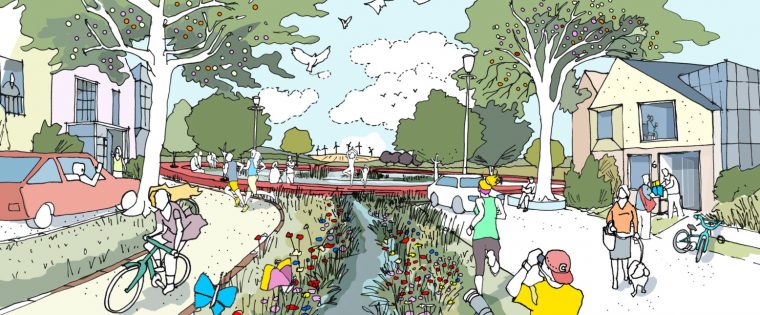Planning for posterity

Anxiety about being left behind, abandonment in all senses, is quite a pervasive condition. The autumn/winter parliamentary calendar remains chock-a-block with legislative agenda to tackle the ‘left behind’. The Archbishop of York has dusted down his copy of David Goodhart’s The Road to Somewhere and begun the August silly season sermonizing on behalf of the unfashionable and non-metropolitan. As above, so below. And all the time our nation’s youth, whose lives, educations and prospects have been most blighted by the coronavirus pandemic, naturally seek to frantically catch up for Fear of Missing Out – or FOMO.
Fear of missing out and being left behind is and has been natural to all ages. At the height of the Cold War, possible gaps of all kinds, real and imagined, nuclear and space race, stoked alarm. During the Eisenhower years, the upper echelons of the Hungarian Communist party, on the eve of the Kremlin’s tanks rushing into Budapest, lamented the country’s inability to bridge the hula hoop gap with the USA. As a policy priority, there were perhaps graver security and economic threats closer to home than the ability of Eastern European youth to rhythmically rotate a plastic circle off their hips as well as their counterparts in the free world. But it proves a point.
Housing is a very serious issue indeed and it would be wrong to dismiss with levity the serious gap between aspirations for home ownership and the malign effects of constrained supply. This situation, in which we don’t build or supply enough affordable homes in places where people not only just wish, but need to live, not merely shapes but is the unhappy reality for a younger generation seemingly permanently priced out of the housing market. And a housing market, which, in the face of the gravest economic downturn in three centuries of recorded history, defied all expectations and, with the fair wind of a stamp duty lift, went ever upwards into the heights of financial absurdity and first rung unattainability.
So if we are to turn generation rent to generation buy, we are going to have to face down a certain amount of irrationality. It feels as if reason is not enough. There exists a library of well-constructed policy answers, whether of supply or demand, of land value or capture, of industry and infrastructure or personal finance and public borrowing. Reform means tackling head-on a sense of wilful collective denial, a national slough of despond, into which all proposed remedies tend to sink.
There’s a lot to be said for the ambitions of the Planning and Housing Bill. Good design for the sake of beautiful homes, much-needed dwellings welcomed by existing and new communities, has a lot to commend it. However, there is the risk of talking a lot of ‘mom and apple pie’ on housing. There are choices to be made and bullets to be bitten – none of them particularly magical.
The Bill will attract a great deal of heat and a modicum of light. Robert Jenrick, the Grand old Duke of Marsham Street, has marched it down the hill, debugged the algorithm of doom and sought to dilute down whatever was too contentious for the only political calculus that counts – that of the Conservative backbench planning WhatsApp group.
What we must consider is what will last beyond this, what will endure. Looking back, earlier this summer we celebrated the centenary of Welwyn Garden City – a triumph of idealism and good design. Garden Cities may not be the panacea for the overheated south east, but they point in the right direction. Closer in time, the anniversary has been celebrated of the triumphant transformation of Kings Cross as a model of significant long-term investment with loving attention – turning what was in living memory a realm of sleaze in the early 1990s into an earthly paradise in N1.
Ultimately, what will remain is what has been built with love, care and a sense of posterity. The name for this is the stewardship model. As promoted and developed nationally by Homes England, this offers the simplest, strongest and place-sensitive solution to bringing communities on board for new development. It would entail land being built out sustainably over a set number of years with a focus on placemaking and increasing clean and ‘good growth’. It would additionally enable land to be brought forward through mixed tenure in a way that might tackle the affordability challenge.
Jonathan Werran is chief executive, Localis
